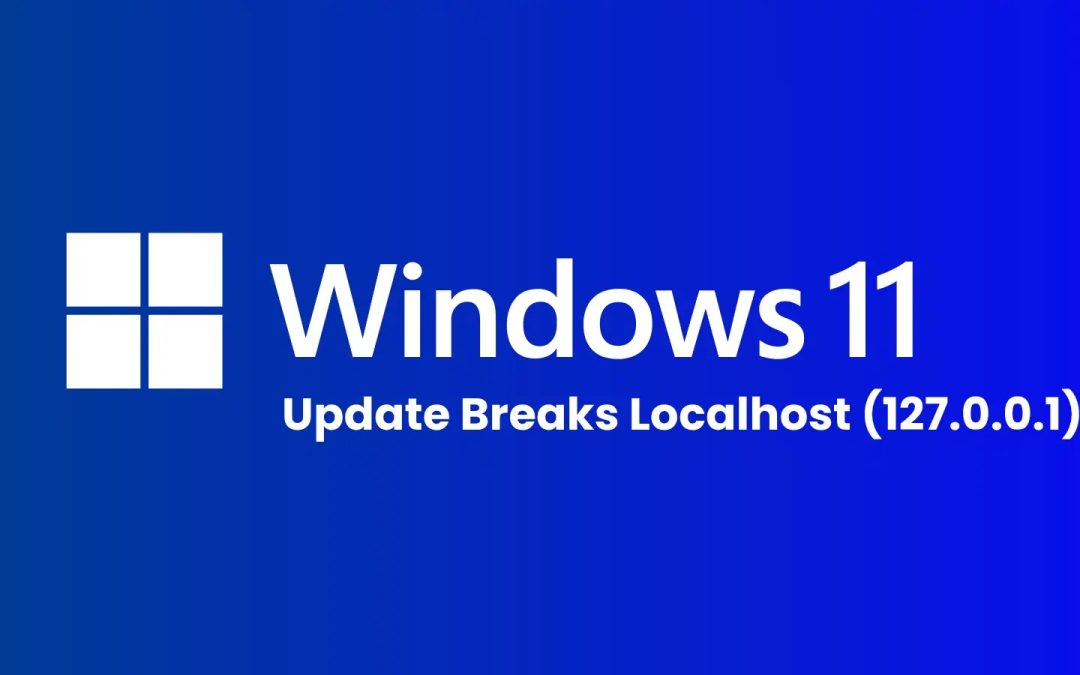“`html
The cumulative update for Windows 11, issued by Microsoft in October 2025, has interfered with localhost capabilities, blocking developers and users from reaching local web apps and services through 127.0.0.1.
Tied to update KB5066835 released on October 14, this issue impacts builds such as 26100.6899 and has led to a flurry of grievances across forums, including Microsoft’s support sites, Stack Overflow, and Server Fault.
This malfunction disrupts essential functions like debugging within Visual Studio and assessing ASP.NET projects, affecting both individual programmers and commercial settings dependent on local servers.
HTTP/2 Protocol Failures
The complication appears as HTTP/2 protocol failures, including ERR_HTTP2_PROTOCOL_ERROR or ERR_CONNECTION_RESET, when attempting to connect to services hosted on localhost.
Users report that applications utilizing IIS Express or Kestrel servers become unresponsive, transforming routine local development into an exasperating experience. For instance, Autodesk acknowledged interruptions to its Vault software, advising its clients to revert the update when feasible.
Discussions in community forums illustrate that the bug transcends amateur users, impacting production desktop applications reliant on loopback communication for internal operations.
One developer mentioned that even basic web previews in Chromium-based browsers now face unresponsive connections following the update.
Investigations suggest alterations in HTTP.sys, the kernel driver responsible for managing HTTP traffic, as the source of the localhost breakdown.
This element, which was updated in KB5066835 to resolve security issues, inadvertently disrupts loopback HTTP/2 negotiations, especially in settings that had the prior September preview update KB5065789.
Users affected have found relief by often uninstalling KB5066835 along with KB5065789 using command line tools like wusa.exe, followed by a system restart.
Alternative solutions include disabling HTTP/2 through registry changes under HKEY_LOCAL_MACHINESOFTWAREMicrosoftIISParameters or updating Microsoft Defender Antivirus definitions via KB2267602, which resolves the problem without necessitating a complete rollback in certain instances.
New installations of Windows 11 seem unaffected, indicating that the error arises from interactions with established setups rather than a fundamental flaw.
As of October 17, 2025, Microsoft has not publicly acknowledged this issue on its KB5066835 support page, although responses from engineers in forums signal internal knowledge and ongoing resolutions.
Some reports indicate that a subsequent Defender intelligence update or minor fix has lessened the issue for systems that have been rolled back, but discrepancies persist across devices and configurations.
With support for Windows 10 drawing to a close, this bug highlights the difficulties in transitioning users to Windows 11 amidst recurring issues following updates.
Developers are encouraged to temporarily halt updates and keep an eye on release health dashboards for official solutions, ensuring limited interruptions in their workflows. This incident is part of a trend of post-update complications, raising calls for enhanced quality control from Redmond.
“`

